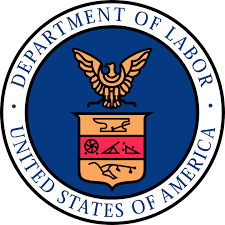You can cut corners in business. You can play fast and loose with your vendor contracts. You can even get away with sloppy recordkeeping—at least for a while. But when you mess with employee 401(k) contributions, you’re not playing games anymore—you’re playing with fire. And in Micone v. iProcess Online, Inc., the fire finally burned everything down.
In a brutal but unsurprising decision out of the District of Maryland, the Court ruled in favor of the Department of Labor (DOL), after the employer, not only the plan sponsor but also the plan administrator—ghosted the case completely. No response, no defense, no apology. Just silence. That’s not a strategy; that’s a confession.
What Went Wrong—And How It All Fell Apart
According to the DOL, the fiduciaries at iProcess Online failed in the most fundamental way: they didn’t deposit participant contributions into the 401(k) trust. Instead, they commingled those funds, over $175,000 withheld from employee paychecks across seven years—with the company’s general assets. In plain English? They treated employees’ retirement money like a piggy bank for operating expenses.
That’s not just bad practice, it’s a textbook breach of fiduciary duty under ERISA. Participant contributions become plan assets as soon as they can be “reasonably segregated” from employer funds. The law is crystal clear. You don’t borrow against it. You don’t delay. You don’t “float” the money for other business needs. You deposit it. Promptly. Period.
But that’s not all. iProcess also failed to make required employer matching contributions and didn’t process participant distribution requests in a timely manner. The company’s negligence was so egregious that the Court not only ruled in the DOL’s favor—it appointed an independent fiduciary to clean up the mess, to be paid out of the pockets of the very fiduciaries who made it.
Oh, and did I mention the company officer had already been convicted of embezzlement and was staring down additional lawsuits from plan participants? The whole story reads like a fiduciary horror show.
Joint and Several Liability: The Final Nail
The Court didn’t just slap the company on the wrist and walk away. It imposed joint and several liability on the fiduciaries for more than $100,000 in remaining damages—money that must be paid within 60 days. That means each fiduciary is on the hook for the entire amount, not just their “share.” There’s no safe harbor here. No ducking responsibility. And to ensure the safety of other retirement plans, the Court barred the individuals involved from serving in any ERISA fiduciary capacity going forward.
That’s not just accountability, it’s professional exile.
The Message for Plan Sponsors: Pay Attention or Pay the Price
If you’re a business owner, a CFO, an HR manager, or anyone with fiduciary responsibility over a retirement plan—this case should give you chills. Because the story here isn’t just about one company’s failure. It’s about what happens when fiduciary oversight breaks down entirely.
The DOL is watching. Participants are empowered. And when things go wrong, the consequences are swift and severe.
Here’s what this case reminds us:
1. Participant contributions are sacred. Once that money comes out of an employee’s paycheck, it’s no longer yours. Delay in depositing it into the plan is not a harmless administrative hiccup, it’s a potential fiduciary breach.
2. Commingling plan assets is never acceptable. This isn’t a gray area. It’s black-letter law. Your business accounts and the plan’s accounts are two different worlds. Don’t cross the streams.
3. Fiduciary responsibility is personal. You can’t hide behind your company’s logo. If you serve as a fiduciary and the plan suffers because of your breach, you’re on the hook, personally.
4. Ignoring the problem doesn’t make it go away. iProcess didn’t show up to court. The Court showed up anyway, with a judgment, with penalties, and with a permanent ban from ERISA service.
Don’t Be a Micone
I’ve said it before and I’ll say it again: your 401(k) plan isn’t just a perk—it’s a fiduciary minefield. You don’t have to be perfect, but you do have to take your responsibilities seriously. That means timely deposits. Clear documentation. Active oversight. And when in doubt? Ask for help before the DOL shows up with a lawsuit and a court-appointed fiduciary.
Because once you lose the trust of your employees—and your grip on compliance—it’s not just your retirement plan that’s in trouble. It’s your reputation, your wallet, and in some cases, your freedom.
Don’t be Micone. Be the fiduciary your employees deserve.







